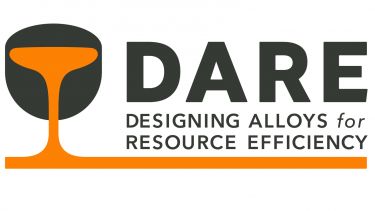Improving conventional processing or “Microstructure on Demand”
This programme tackled the first issue in ‘Defining Manufacturability‘, with the reduction of waste in conventional processing through optimisation of microstructure for machining operation.
Basic research at Sheffield showed that a high degree of subsurface damage was inflicted during high-performance machining, but was undetected by conventional surface integrity techniques. Subsurface damage will lead to micro-cracking, which in turn will affect the fatigue endurance limit and thus service performance.
There is a direct correlation between crystallographic texture and susceptibility to sub-surface damage. If the texture orientation of an as-forged part can be determined before machining, then the machining process can be optimised for the billets microstructure, minimising wastage, and improving in-service performance.

Designing Alloys for Resource Efficiency (DARE)
Addressing future resource challenges for alloys in manufacturing.
